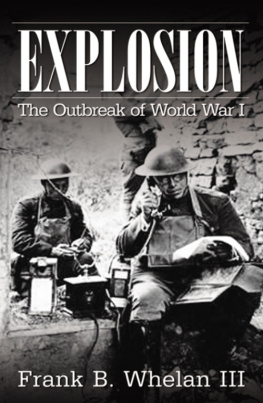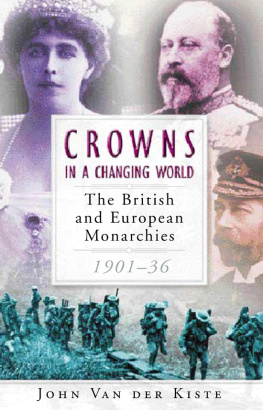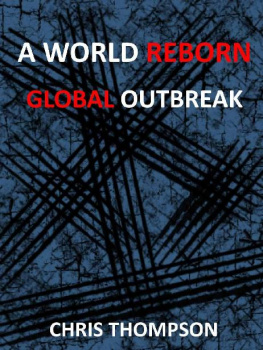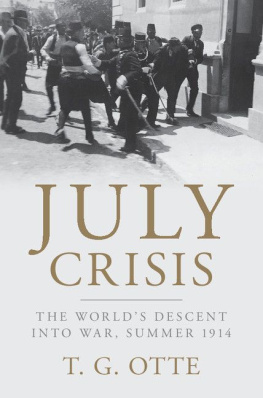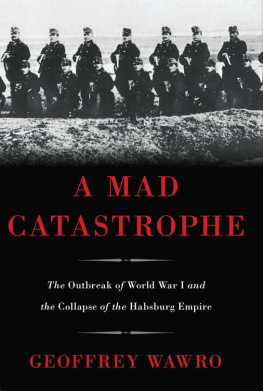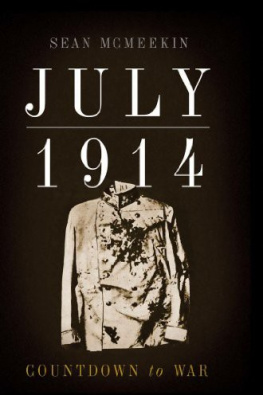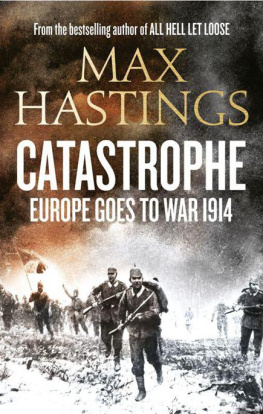
All rights reserved. No part of this book shall be reproduced or transmitted in any form or by any means, electronic, mechanical, magnetic, photographic including photocopying, recording or by any information storage and retrieval system, without prior written permission of the publisher. No patent liability is assumed with respect to the use of the information contained herein. Although every precaution has been taken in the preparation of this book, the publisher and author assume no responsibility for errors or omissions. Neither is any liability assumed for damages resulting from the use of the information contained herein.
Copyright 2012 by Frank B. Whelan III
ISBN 978-0-7414-7949-5 Paperback
ISBN 978-0-7414-7950-1 eBook
Library of Congress Control Number: 2012948221

INFINITY PUBLISHING
Toll-free (877) BUY BOOK
Local Phone (610) 941-9999
Fax (610) 941-9959
www.buybooksontheweb.com
Over nine million soldiers died in World War I. It seemed as though everybody in the combatant countries knew someone whose father, son, brother, uncle, nephew, cousin, or friend had been killed or wounded. Other than the one that followed a quarter-century later, it was historys deadliest war.
Aside from the horrible human toll, the Great War reshaped the world map forever by destroying four empires. It helped facilitate the rise of the communists, whose conflict with the West was the defining international event between 1946 and 1989. And the Ottoman Empires collapse created, to some degree, a power vacuum in the Middle East that helped lead to the Arab-Israeli struggle that still exists today.
This book is the first in a four-part series designed to give the general reader a summary of the Great War. While many histories of the war focus on the Western Front, this series will address the conflict on a global scale. The Eastern, Italian, Balkan, and Middle Eastern theaters will therefore be covered at some length. Also, much greater emphasis will be placed on the wars strategic and diplomatic aspects than on individual battles and what life was like for soldiers in the trenches. Most people already know that the conditions the troops faced were less than pleasant.
The present volume covers the period from the late 1800s to the outbreak of hostilities in early August 1914. The first chapter addresses Germanys growing pre-war isolation, the second chapter deals with Austria-Hungarys internal and external difficulties, and the remaining chapters concentrate on the five weeks following Archduke Franz Ferdinands assassination on June 28, 1914.
I hope this book and series helps readers obtain a better understanding of, appreciation for, and interest in this terrible but fascinating world event. Such compensation would be much greater than any amount of effort I could have put into this endeavor.
Concerning the sources used:
1. In the footnotes, B.D. and G.D. stand for British Document and German Document, respectively. The British documents are from Volume XI of British Documents on the Origins of the War; the German documents are from Outbreak of the World War: German Documents Collected by Karl Kautsky.
2. Quotations in the British Blue Book, French Yellow Book, Russian Orange Book, Serbian Blue Book, German White Book, and Austro-Hungarian Red Book are from Collected Diplomatic Documents Relating to the Outbreak of the European War (published by the British government) and the Carnegie Endowment for International Peaces Diplomatic Documents Relating to the Outbreak of the European War. These six books are referenced in the footnotes as, respectively, B.B.B., F.Y.B., R.O.B., S.B.B., G.W.B., and A.R.B., and the specific volume of the Austro-Hungarian Red Book is noted (e.g., A.R.B. II). The collection from which the quote is taken is identified as C.D.D. (the British government version) or D.D. (the Carnegie version).
Unless indicated otherwise, all parentheses in the quotations in this book are my own and were not part of the original quote.
I must express my heartfelt thanks to my wonderful and beautiful wife, Christy, for her support and patience during the years I spent writing this book. This work is dedicated to her.
| Germany |
Wilhelm II | Kaiser |
Theobald von Bethmann-Hollweg | Chancellor |
Gottlieb von Jagow | Secretary of State for Foreign Affairs |
Arthur Zimmermann | Undersecretary of State for Foreign Affairs |
Friedrich von Pourtales | Ambassador to Russia |
Karl Max Lichnowsky | Ambassador to England |
Heinrich Leopold von Tschirschky und Bogendorff | Ambassador to Austria-Hungary |
Wilhelm von Schoen | Ambassador to France |
Hans von Flotow | Ambassador to Italy |
General Helmuth von Moltke | Chief of the General Staff |
General Erich von Falkenhayn | Prussian Minister of War |
Admiral Alfred von Tirpitz | State Secretary of the Navy |
| Austria-Hungary |
Franz Josef I | Emperor of Austria and King of Hungary |
Leopold von Berchtold | Foreign Minister |
Stephen Tisza | Prime Minister of Hungary |
Alexander von Krobatin | Minister of War |
Ladislaus Szogyeny | Ambassador to Germany |
Friedrich Szapary | Ambassador to Russia |
Albert von Mensdorff-Pouilly- Dietrichstein | Ambassador to England |
Kajetan Merey von Kapos-Mere | Ambassador to Italy |
Wladimar Giesl von Gieslingen | Ambassador to Serbia |
General Franz Conrad von Hotzendorf | Chief of the General Staff |
| England |
George V | King |
Herbert Asquith | Prime Minister |
Edward Grey | Foreign Secretary |
Arthur Nicolson | Undersecretary of State for Foreign Affairs |
Eyre Crowe | Assistant Undersecretary of State for Foreign Affairs |
Maurice de Bunsen | Ambassador to Austria-Hungary |
Edward Goschen | Ambassador to Germany |
George Buchanan | Ambassador to Russia |
Francis Bertie | Ambassador to France |
Rennell Rodd | Ambassador to Italy |
Horace Rumbold | Charge dAffaires at Berlin |
Dayrell Crackanthorpe | Charge dAffaires at Belgrade |
| Russia |
Nicholas II | Tsar |
Sergei Sazonov |

